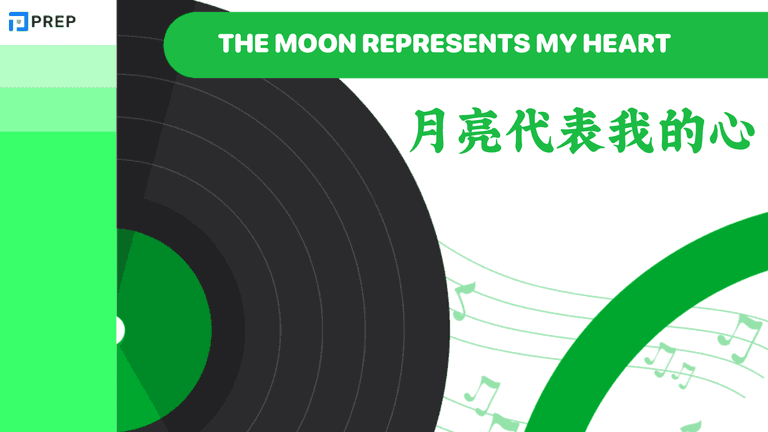Night in Chinese: Meaning, Characters and Culture
Curious about how to express “night in Chinese”? This guide explains its meaning, characters, and pronunciation, while also covering useful phrases like “good night” and cultural symbolism in literature, calligraphy, and everyday life.
I. What Does “night in Chinese” Mean?
The concept of "night" in Chinese is expressed through two primary words that serve different communicative purposes and social contexts. Understanding when and how to use each option is essential for natural Chinese expression and cultural appropriateness.
Chinese offers two main ways to express "night":
- 夜 (yè) — The classical, formal word for night
- 晚上 (wǎnshàng) — The everyday, conversational term for evening/night
Both words refer to the nighttime period, but they carry different levels of formality, cultural connotations, and usage patterns that native speakers instinctively recognize and apply in appropriate contexts.
- 夜 (yè) - Formal Contexts
- Literary writing and poetry
- News reports and formal announcements
- Academic or business documents
- Traditional expressions and idioms
- Examples:
夜景 (yèjǐng - night scenery)
夜市 (yèshì - night market)
- 晚上 (wǎnshàng) - Daily Conversation
- Casual conversations with friends and family
- Telling time and making plans
- Social media and text messages
- Everyday scheduling and activities
- Examples:
晚上好 (wǎnshàng hǎo - good evening)
今天晚上 (jīntiān wǎnshàng - tonight)
The literal meaning differs slightly between the two terms. 夜 represents the complete concept of "night" as a time period, while 晚上 specifically refers to the evening hours and early night period when people are typically awake and active.
Contextual Usage:
- Planning activities: "我们晚上去看电影" (We're going to watch a movie tonight) — uses 晚上
- Describing atmosphere: "夜色很美" (The night scenery is beautiful) — uses 夜
- Time expressions: "晚上八点" (8 o'clock in the evening) — uses 晚上
- Poetic descriptions: "静夜思" (Quiet Night Thoughts) — uses 夜
This distinction helps you communicate with appropriate formality while sounding natural in different social and professional situations.
1. How to Write “night in Chinese” Characters
The most direct character for “night in Chinese” is 夜 (yè). Unlike many other Chinese words, this character is the same in both Simplified and Traditional forms, so learners only need to memorize one version.
- Character: 夜
- Meaning: Night, nighttime
- Radical: 夕 (xī) – meaning “evening”
- Components: The radical 夕 (evening) is combined with additional strokes to give the full character 夜.
Stroke Order:
Learning stroke order is essential for proper handwriting and recognition in calligraphy. The character 夜 has 8 strokes, and the order typically follows top to bottom, left to right.
- Step 1: Write the radical 夕 on the left.
- Step 2: Add the remaining strokes on the right side to complete the character.
Mnemonic Tip: Think of 夜 as a picture of the evening radical 夕 extended with extra marks that suggest darkness or covering, reinforcing the meaning of nighttime.
Example sentence: 今夜的月亮很亮 (jīn yè de yuèliàng hěn liàng) – The moon is bright tonight.
2. How to Pronounce “night in Chinese” in Mandarin
The word 夜 (night) in Chinese is pronounced as yè in Pinyin. It uses the fourth tone, which is a sharp, falling tone. When spoken, the sound starts high and drops quickly, similar to giving a firm command.
- Pinyin: yè
- Tone: 4th tone (falling)
- IPA: [jê]
In daily life, the phrase 晚上 (wǎnshàng) is more commonly used to mean “evening” or “night.” Here, the pronunciation is:
- Pinyin: wǎnshàng
- Tones: 3rd tone + 4th tone
- IPA: [wàn ʂâŋ]
Examples:
- 今夜很冷 (jīn yè hěn lěng) – Tonight is cold.
- 我晚上去看电影 (wǒ wǎnshàng qù kàn diànyǐng) – I’m going to watch a movie tonight.
Practice Tip: Say yè with a strong falling tone, like saying “yeah!” firmly in English. For wǎnshàng, be careful with the dipping-rising third tone in wǎn, followed by the falling tone in shàng.
II. Common Phrases with “night in Chinese”
Mastering essential phrases containing "night" vocabulary enables natural conversation about evening activities, greetings, and time expressions. These commonly used expressions form the foundation of daily Chinese communication involving nighttime contexts.
Essential Night Phrases
|
Chinese |
Pinyin |
English |
Usage Context |
Example Sentence |
|
晚安 |
wǎn'ān |
Good night |
Evening farewell, bedtime |
亲爱的,晚安!(Good night, dear!) |
|
今晚 |
jīnwǎn |
Tonight |
Current evening plans |
今晚你有空吗?(Are you free tonight?) |
|
夜里 |
yèlǐ |
At night/During night |
Time reference |
夜里下雨了 (It rained during the night) |
|
深夜 |
shēnyè |
Late night/Midnight |
Very late hours |
深夜还在工作 (Still working late at night) |
|
通宵 |
tōngxiāo |
All night long |
Staying up all night |
通宵学习 (Study all night) |
Night Activities and Lifestyle
|
Chinese |
Pinyin |
English |
Usage Context |
Example Sentence |
|
夜生活 |
yèshēnghuó |
Nightlife |
Urban entertainment |
这个城市的夜生活很丰富 (This city has rich nightlife) |
|
夜市 |
yèshì |
Night market |
Shopping, food culture |
我们去夜市吃小吃 (Let's go to the night market for snacks) |
|
夜宵 |
yèxiāo |
Late night snack |
Food after dinner |
你想吃夜宵吗?(Do you want a late night snack?) |
|
夜班 |
yèbān |
Night shift |
Work schedule |
他上夜班 (He works the night shift) |
Idiomatic Expressions
|
Chinese |
Pinyin |
English |
Meaning |
Example Usage |
|
夜以继日 |
yè yǐ jì rì |
Day and night |
Working continuously |
他夜以继日地工作 (He works day and night) |
|
黑夜 |
hēiyè |
Dark night |
Complete darkness |
黑夜中看不见路 (Can't see the road in the dark night) |
|
静夜 |
jìngyè |
Quiet night |
Peaceful evening |
静夜思 (Quiet Night Thoughts - famous poem) |
These expressions provide practical vocabulary for discussing evening plans, work schedules, and social activities, enabling more natural and fluent Chinese conversation in nighttime contexts.
III. Cultural Symbolism of “night in Chinese”
In Chinese culture, “night” (夜 yè) carries meanings that go far beyond a simple time of day. It often represents emotions, atmosphere, and traditions that are deeply rooted in literature, art, and daily life.
- Literature and Poetry: Night frequently appears in classical Chinese poetry to symbolize silence, longing, or romance. Poets often used 夜 (yè) to depict quiet scenes or deep emotions.
Example: 静夜思 (Jìng Yè Sī – “Thoughts on a Silent Night”) by Li Bai reflects homesickness under the moonlight. - Philosophy and Balance: In Taoist and Yin-Yang philosophy, night represents Yin energy: stillness, darkness, rest, and reflection. It balances the Yang energy of daytime.
- Everyday Symbolism: In modern usage, phrases like 夜生活 (yè shēnghuó – nightlife) highlight the lively, energetic side of night, while idioms like 夜以继日 (yè yǐ jì rì – day and night) symbolize persistence and hard work.
- Art and Calligraphy: The character 夜 is also popular in calligraphy and tattoos. It embodies not just the literal night, but also mystery, elegance, and a sense of eternity.
Overall, “night in Chinese” reflects both the peaceful and dynamic aspects of Chinese culture—ranging from quiet reflection in poetry to vibrant city life after dark.
Mastering how to say and use “night in Chinese” goes beyond learning a single character—it’s about understanding context, pronunciation, and how it shapes real communication. From everyday greetings like 晚安 (wǎn’ān) to poetic expressions in literature, knowing when and how to use 夜 (yè) or 晚上 (wǎnshàng) makes your Mandarin sound natural and expressive.
Keep building your confidence with PREP’s step-by-step explanations, practical examples, and learner-friendly tools—designed to help you speak Chinese fluently, one essential word at a time.

Hi I'm Chloe, and I am currently serving as an Product Content Administrator at Prep Education. With over five years of experience in independent online IELTS study and exam preparation, I am confident in my ability to support learners in achieving their highest possible scores.
Comment
Premium content
View allPersonalized roadmap
Most read












